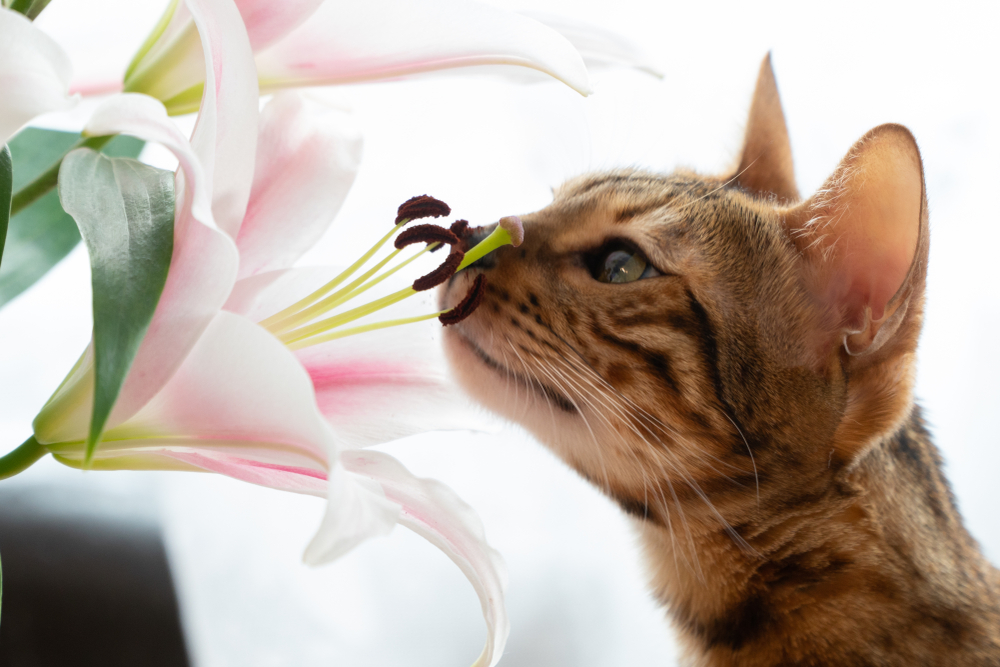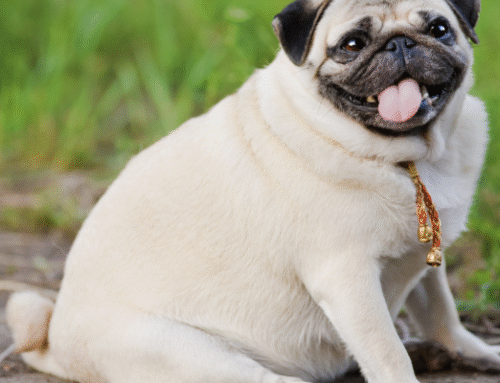Is your pet living with hazardous materials? Are toxins lurking on your lawn? Is your home sweet home a danger zone for your four-legged friend?
We know that sounds a bit alarmist, but many everyday items are extremely toxic to dogs and cats. And, because these products are so commonplace, they’re easy to overlook—leaving curious, bored, or hungry pets at risk for a potential health disaster.
Check out the following seven everyday toxic items and see if any are familiar. Then, take precautions to protect your pet.
#1: Medications and pets
Nearly 70% of Americans take daily prescription medications and 9 out of 10 report using over-the-counter (OTC) medications on a regular basis, so you can easily see why medication ingestion is the most commonly reported pet toxicity in the United States—and has been for the past 10 years.
Pets routinely find these pocket-sized poisons in bags, discarded laundry, and on nightstands and countertops. Irrepressible dogs may chew on plastic vials, organizers, or blister packs, ingesting not only the contents but also the packaging. According to ingestion statistics, the most commonly prescribed pharmaceuticals include antidepressants, heart and blood pressure medications, ADHD medication, anticonvulsants, and ibuprofen. Because pets’ metabolism and body weight is significantly different, as little as one pill or capsule can be a deadly overdose.
#2: Xylitol and pets
Many pet owners are familiar with chocolate’s toxicity, but fewer know about the other sweet-but-deadly threat—xylitol. Xylitol is a natural sugar substitute derived from birch bark that is most frequently found in sugar-free gum, candy, baked goods, and snack food and spreads, including peanut butter. However, because of its antibacterial and moisture-retaining properties, this sweet but sneaky compound is becoming increasingly common in dental care and personal hygiene products, including mouthwash, tooth paste, cosmetics, and shampoo.
Xylitol ingestion triggers hypoglycemia (i.e., a dangerous drop in blood sugar) and can cause fatal acute liver failure in some dogs, so pet owners must stay vigilant about checking ingredient labels for xylitol.
#3: Ethylene glycol and pets
Ethylene glycol is the active ingredient in automotive antifreeze, as well as brake fluid, radiator coolant, and windshield deicer. Pets find its sweet flavor attractive and may lap from spills or puddles on the driveway or in the garage. Ethylene glycol poisoning moves quickly—without rapid intervention (i.e., antidote administration), dogs and cats experience severe and irreversible kidney damage within 24 to 72 hours.
#4: Grapes, raisins, and pets
Grapes, raisins, sultanas, and currants are toxic to some dogs and cats, although the reason why, and what constitutes a toxic dose, remains unclear. Affected pets experience severe gastrointestinal (GI) illness, nausea, inappetence, and acute kidney failure.
The Mount Pleasant Animal Hospital team advises pet owners to keep all foods that contain any version of these ingredients, such as baked goods, protein and snack bars, trail mix, wine, and grape juice, out of pets’ reach.
#5: Lilies and pets
Pets love that their owners sometimes bring the outdoors inside. Unfortunately, many popular plants and flowers are toxic to pets—especially those in the lily family. Lily ingestion in cats is considered a veterinary emergency, because without rapid treatment (i.e., no longer than 18 hours after ingestion), cats who ingest any lily part—including the leaves, stem, petals, and vase water—experience acute kidney failure. Dogs are not equally affected and typically experience only GI distress. However, Lily of the Valley (Convallaria majalis) is equally toxic to both species and can cause life-threatening arrhythmias.
#6: Garlic, onions, leeks, chives, and pets
The Allium plant family, which includes garlic, onions, leeks, and chives, is a dangerous medley of toxic trouble for dogs and cats. Oxidizing compounds in these ingredients disrupt red blood cell structure and in less than 72 hours, the damaged cells begin to hemolyze (i.e., rupture), resulting in life-threatening anemia.
Cats are especially sensitive to Allium toxicosis and may experience life-threatening signs after ingesting less than a teaspoon of harmful material. In addition to whole or cooked Allium plant material, pet owners should be aware of concentrated forms, such as dehydrated flakes, powders, and soup mixes.
#7: Rodenticide and pets
Rat and mouse baits contain deadly quantities of vitamin D₃, anticoagulants, and neurotoxins that pose equally life-threatening hazards to dogs and cats. These products also include appealing scents and flavors that pets find attractive and which encourage large-quantity consumption. Depending on the active ingredient, pets may suffer from acute kidney failure, uncontrollable bleeding, or cerebral edema (i.e., brain swelling). Pets typically encounter these items in garages and basements, and around their home’s foundation.
Sadly, because visible toxicity signs can take days to appear, unless pet owners witness their pet’s exposure or find evidence (e.g., chewed packaging or bait) and seek immediate veterinary attention, the internal damage may be irreversible. If your pet encounters any form of rodenticide (e.g., blocks, pellets, soft bait, liquid), gather all packaging materials and immediately contact Mount Pleasant Animal Hospital or the ASPCA Animal Poison Control Center.
Don’t let everyday items endanger your pet—store harmful items in closed containers and keep them out of paws’ reach. Whenever possible, substitute pet-safe alternatives for greater peace of mind.
If you’re worried that your pet may have encountered something toxic, don’t wait for visible signs—contact our Mount Pleasant Animal Hospital team, who can assess your pet’s condition over the phone and let you know if they need emergency care. After hours, call the ASPCA Animal Poison Control Center for expert guidance from a veterinary toxicologist.








